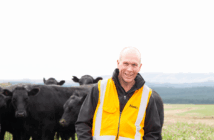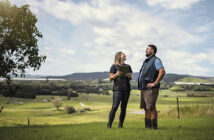
Ralph Hays is the New Zealand trade commissioner for Brazil, based in Sao Paulo.
As the world’s fifth most populated country, there is no doubt that Brazil is a huge market, and for some of New Zealand food and beverage and food technology companies it can be a bit daunting at first. Especially for those companies that are ill prepared to manage the language, culture and bureaucracy.
Brazil is not the place to start your international business operations if you are impatient and have limited resources. However, for those prepared for a slightly harder road to success, the opportunities here can be limitless.
With a consumer market of over 200 million, in 2013 Brazil produced 508.5 million tonnes of sugar, 85.4 million tonnes of soy and 10.2 million tonnes of beef. To say it is a big market is an understatement.
And with a growing middle class and more disposable income, consumers are eating out more often leading to growing demand of fresh produce sales to foodservice operators.
Brazil is a major producer of some of the same things that we are including dairy products and meat, and while New Zealand’s production volumes appear somewhat small when placed alongside Brazil’s, where New Zealand can compete and add value is with our technology and expertise around productivity, packaging and food preservation.
Brazil has the world’s largest commercial cattle herd, but despite having a vastly bigger farming operation, yields and productivity in Brazil’s agricultural sector are well below New Zealand’s. Brazilian farmers are blown away by the quality of dairy cows and milk from New Zealand and by the efficiency of our farms, and that presents big opportunities in agribusiness.
In most sectors, the opportunities Brazil offers New Zealand companies are relatively untouched. That’s partly because Brazil is a protected market with steep tariffs for anything that competes with a locally produced product.
Brazilian importers and distributors usually prefer products with six months shelf life or more upon arrival. In addition to the product itself, packaging, status and level of innovation are important attributes. Products that combine these characteristics are more likely to succeed in this market. The range of New Zealand products now being sold in this market highlights the diversity of the market.
Brazilians are traditional beer drinkers and New Zealand boutique beers such as 8 Wired and Moa Brewing Company’s range are proving popular, as is a wide range of New Zealand wine. Lamb meat is a relatively new concept that is also going down well with Brazilians. Alongside meat and beverages, New Zealand companies are also active in other food categories such as dairy, sports nutrition and seafood products. The three largest food retailers, Pao de Acucar, Carrefour, and Walmart, have the widest geographic coverage and control around 23 percent of retail supermarket operations, and all three are increasingly stocking New Zealand products.
The food processing sector is another area of interest to New Zealand companies. In 2012, Brazilian food processing industry revenues were around US$219 billion, accounting for 9.8 percent of the GDP. According to the Brazilian Food Industry Association, most (81 percent) food processing establishments are very small companies with less than 19 employees. Euromonitor data shows 2013 retail sales in the packaged food market in Brazil to be around US$126 billion. That makes it the largest in Latin America and the fourth largest in the world.
Given the size of Brazil’s meat industry, New Zealand companies are increasingly making the most of opportunities around meat processing equipment, packaging and food preservation technology. All designed to help Brazil export to foreign markets.
It’s easy to see the opportunities that await, but it can be a tough and frustrating place to do business. The tax and legal systems are complex, rules change constantly and logistics can be challenging, as are language barriers and bureaucracy.
A simple export model doesn’t usually work here, and one of the most critical success factors is that companies need to be in the market or have a local representative that speaks Portuguese. Many foreign companies getting traction have formed a joint venture with a Brazilian company or are getting around tariff barriers by assembling or manufacturing in the market.
Another critical success factor is investing in marketing. Getting the attention of just a fraction of those 200 million consumers does not happen by accident, and as the range of products available here increases, the choices that consumers have here do so as well.
But for businesses looking long term, it makes sense to be investing in Brazil to tap into the growing consumer demand.
Ralph Hays is the New Zealand trade commissioner for Brazil, based in Sao Paulo.
Find more international insights at www.nzte.govt.nz or follow twitter.com/NZTEnews




























































































